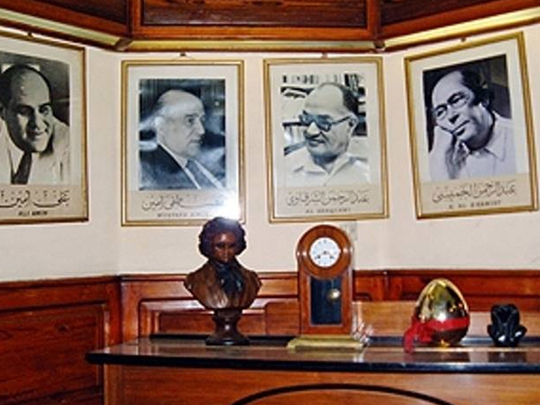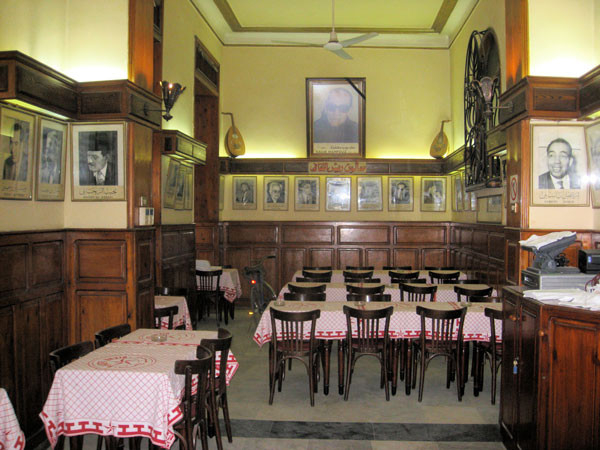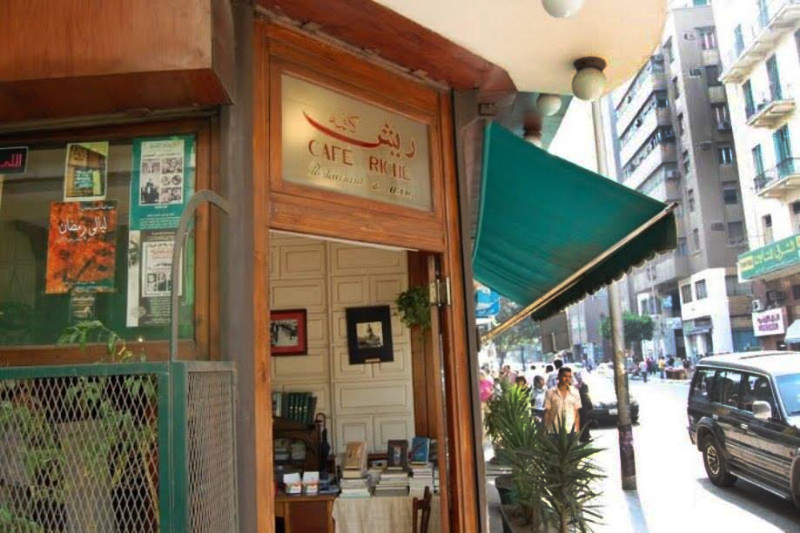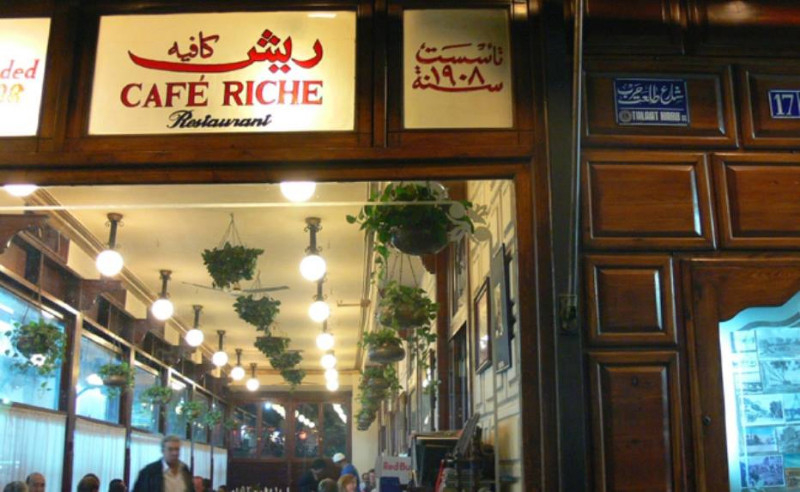
Cairo: Sandwiched between shops on one of central Cairo’s busiest streets, Cafe Riche has been a vibrant witness to dramatic changes in Egypt for more than a century.
Set up in 1908, the coffee house, famed for its distinctive wooden panelling and glass windows, has since been a favourite haunt for intellectuals and politicians from across the Arab world.
Its Egyptian owner, Majdi Abdul Malak died earlier this month, leaving the future uncertain for Riche, nicknamed as the cafe of the intelligentsia. Since Abdul Malak’s death, the cafe situated in the Talaat Harab Street, has been closed, with many of its patrons left wondering what lies ahead for the place.
“It will be ugly to wake up one day and find out that Riche has been turned into another shop for selling clothes,” said Hamdi Abdul Rahim, a literary critic and a regular patron of the cafe. “There are signs that the coffee shop will be sold. It would not be absurd to ask the Egyptian state to protect Riche.”
Since its establishment inside a European-style building, the ownership of Riche has changed hands several times. The cafe was set up by an Austrian, who sold it in 1914 it to a Frenchman, who was later succeeded by a series of Greek nationals.
In 1960, an Egyptian named Abdul Malak Mikhail bought Riche and it has since been a family business. His son Majdi, an ex- airforce pilot, took over after his death. Majdi, who died last week, had no children. His brother, Murad, a long-time emigre in the US, is the only heir.
“Majdi Abdel Malak was one of the best people I’ve come to know since I started frequenting Riche in 1972,” said Egyptian writer Ebrahim Abdul Majid. “Majdi was kind-hearted and culturally broad-minded. His death is painful news for all intellectuals. I hope that the new owner will keep this cultural bastion.”
Neighbours of the cafe say that they are not sure if the latest heir will come to live in Egypt and what he plans to do with the place.
Riche fans have launched an online campaign to urge Egyptian authorities to list the coffeehouse as a heritage site, thus blocking any bid for its sale.
“Lovers of the cafe are racing against time to prevent the possibility of selling it to an investor whether Egyptian or foreigner,” said Manar Ahmad, the campaign founder. She cited disclosures by the late owner that he had turned down repeated takeover offers from private entrepreneurs.
“This cafe represents cultural and political heritage that must be maintained. We will not allow it to be sold under any pressure or pretext to become a restaurant or any other sort of business.”
In recent years, development companies have reportedly bought several stately buildings in central Cairo, known as Paris of the Nile, raising fears that the architectural identity of the area will change.
In an apparent bid to allay these fears, local Cairo authorities have recently launched a drive to give a facelift to the central Cairo buildings. However, there has been no official comment on the fate of Riche.
Unlike other coffeehouses in Egypt, Riche serves alcohol and snacks. Its customers are, however, barred from smoking the narghile (water pipe) and playing cards, traditions that are rife in other coffeehouses of Cairo.
A large number of the Arab world’s most celebrated writers and politicians were once patrons of Riche. Egypt’s singing legend Umm Kulthum and iconic comedians Najeeb Al Rehani, among others, performed at a stage attached to the coffeehouse. Egypt’s King Farouq is said to have met his second wife Nermin there.
Jamal Abdul Nasser and army comrades planned for the 1952 overthrow of Farouq at Riche, according to historians. Nasser ruled Egypt from 1954 until his death in 1970.
Iraq’s Saddam Hussain, too, used to sit at the cafe when he was a student in Cairo.
Egypt’s Nobel laureate Najeeb Mahfouz used to hold a literary session at Riche every Friday in the 1960s. Riche inspired Mahfouz, who died in 2006, to write his novel Al Karnak that portrays Nasser’s police oppression of student activists.
With the cafe insulated from the noise on the street, poets would capture and share their thoughts with the Riche clientele.
Famed lyricist Ahmad Fouad Nejm, himself a Riche regular, satirised intellectual elitism in the cafe in a poem titled Alliance. The poem goes in part as saying:
“Long live the intellectual at the Riche Cafe
“Long live, long live, long live
“Stuck up and elusive
“Lacking practice
“An enemy of overcrowding
“A bag full of words
“With a few empty ones and a few terms
“He fabricates quick solutions to distant problems...”
Riche was also the launch pad for a march led by well-known Egyptian writer Yousuf Idriss in the late 1970s to protest against then president Anwar Al Sadat’s signing of a peace treaty with Israel. The cafe was briefly closed by Sadat’s government.
The walls of the coffeeshop are decorated with framed pictures of writers and actors who were among its patrons over the years. At the entrance to the Parisienne-style cafe, well-known books welcome customers. Riche still has a printing machine, which historians say was used in 1919 by nationalists to print leaflets calling for the overthrow of the then British occupiers of Egypt.
Riche is located in the vicinity of Tahrir Square, the epicentre of the 2011 uprising that forced long-time president Hosni Mubarak from power.
“Revolutionaries used to take refuge in Riche from tear gas fired by police in the early days of the revolution,” recalls Anwar Sa’ad, a 58-year-old customer, who lives in the nearby Ataba Square.
“Riche was also a kind of field hospital for protesters injured in clashes with bullies hired by Mubarak allies. It was also a gathering place for opponents of the Muslim Brotherhood,” he added, referring to the Islamist group that was deposed by the army in 2013 following mass protests against its one-year rule.
“Riche’s walls are pulsating with history. It is part of the nation’s memory, which must be protected.”















